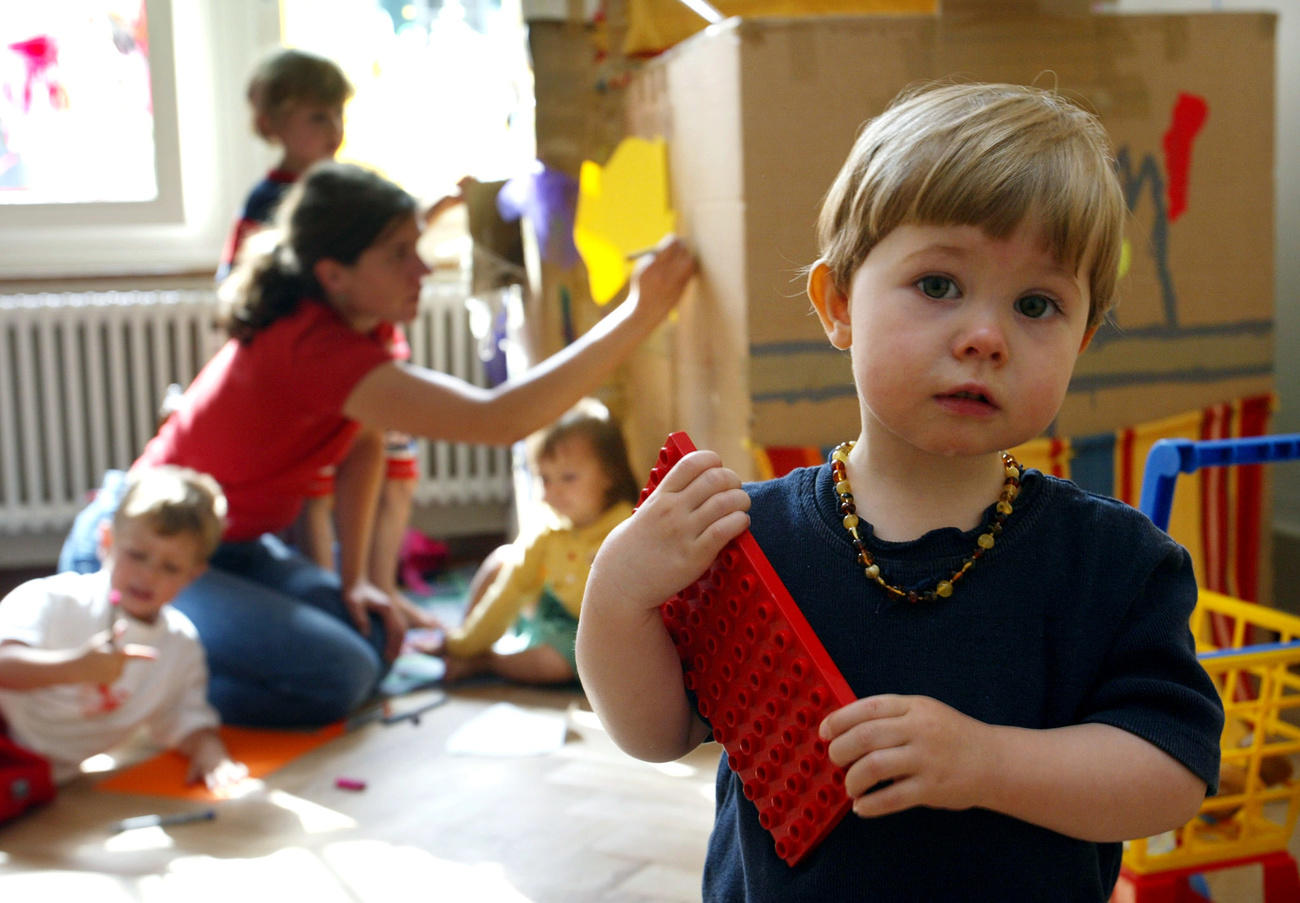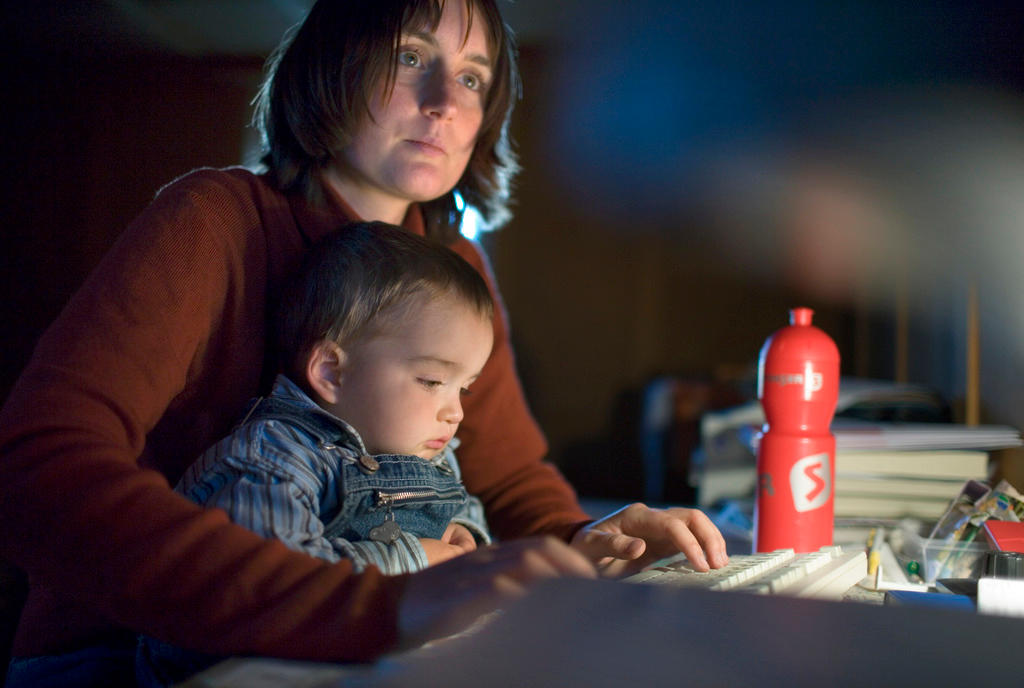
Study: daycare ‘not negative’ for development

Putting children in nursery does not adversely affect their development, a Swiss study has found. What’s more, it saw no difference between children who go to daycare or who stay at home.
The studyExternal link, whose results were highlighted by the Tages-AnzeigerExternal link on Friday, is, the paper says, the first of its kind on this issue in Switzerland.
The University of Zurich team, led by Moritz DaumExternal link, a professor of developmental psychologyExternal link, investigated the relationship between type of childcare and toddlers’ skills in four important developmental areas: motor, cognitive, social and language. It looked at 637 children at the age of 18 and 24 months who were either cared for exclusively at home by their parents or relatives (home-care) or attended daycare for a minimum of two days a week.
The children’s skills were tested using standard assessment tools and then a comparison made between the two groups. The results suggested that, for the sample tested, “childcare type is not related to [a] toddler’s cognitive, motor, social and language skills”, the study said.
No difference
“For me it’s great and very important to see that it makes no difference if a child is looked after at home or in daycare,” Daum told Swiss public television SRFExternal link. “I am not surprised by this result, as the quality of daycare in Switzerland is predominately very high,” he added.
The Swiss results confirm findings from other international studies, researchers say.
Key for children’s development is attention, enough and varied learning opportunities, so also being able to go outside, interacting with others and having a caregiver. This can also apply to daycare, Daum said, as there are playmates, caregiving staff and playtime outside.
Kibesuisse. the Swiss childcare association, welcomed the positive results, but said in the SRF report that there were still areas of improvement, especially in terms of the staff/children ratio and staff fluctuation rates.
Traditional attitudes
More than half of mothers in Switzerland work at least-part time, and demand for daycare has risen steadily. Around 40% of children aged up to three now attend external childcare. The European Union average is comparable, the study says, although there are huge differences between the countries: for example, in Denmark it’s 65%, but in the Czech Republic, it’s 5%.
However, as the article points out, daycare, “is still a highly sensitive and controversial issue among the public”. Traditional views around child rearing can till be heard and the school day is structured in such a way – children come home for lunch – that it’s challenging for working parents. Childcare can also be expensive.
The childcare issue is nevertheless a much discussed one: also on Friday. a coalition of Swiss cities and towns called for more support for early years childcare and education.

More
Mothers face double-edged sword in Swiss workplace culture

In compliance with the JTI standards
More: SWI swissinfo.ch certified by the Journalism Trust Initiative




























You can find an overview of ongoing debates with our journalists here . Please join us!
If you want to start a conversation about a topic raised in this article or want to report factual errors, email us at english@swissinfo.ch.